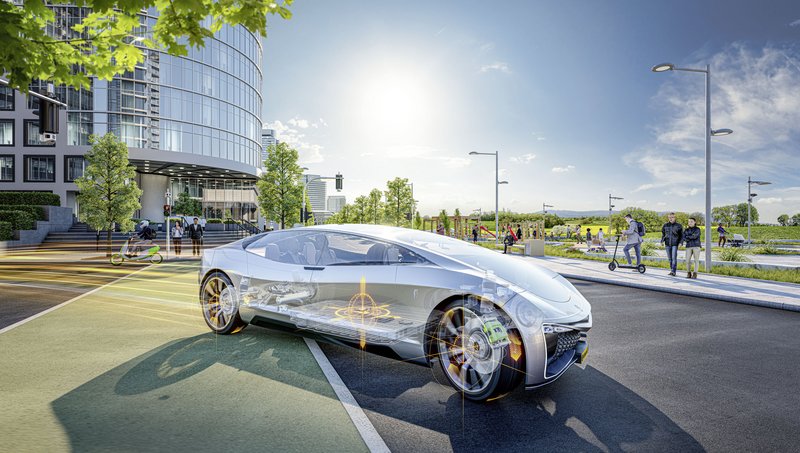Continental Receives Major Award for its Future Brake System Technology Worth Over Two Billion Euros
- Third quarter order intake value of about €1.5 billion, totaling up to more than €2 billion
- Semi-Dry brake system a milestone in the development of Future Brake Systems
- System to be introduced with a global North American car manufacturer in 2025
- Key components to be manufactured in Continental’s Morganton, NC facility as it celebrates its 30th Anniversary this year
MORGANTON, NC., November 9, 2022 — Technology company Continental received its first major order in the third quarter for the mass production of its semi-dry brake system (also known as Future Brake System or FBS 2), valued at about €1.5 billion. This success increases the lifetime sales to more than €2 billion for this new system. The start of series production with a North American car manufacturer is planned for 2025. The semi-dry brake system introduces electromechanical brakes on the rear axle of a vehicle to operate without brake fluid. Besides the semi-dry brake system, the order also includes Continental Air Supply, a highly integrated air supply system used in combination with air springs on the front and rear axles for air suspension.
“We are excited to start seeing the future brake system on the road soon,” said Lutz Kuehnke, Head of Safety and Motion Business Area and Vehicle Dynamics, Continental Automotive, North America. “Semi-dry brakes represent the next generation of braking on our product roadmap. Systems like this are essential for drivers to be able to safely access additional electrification and automated driving features.”
The semi-dry system incorporates Continental’s second-generation brake-by-wire system MK C2 with electromechanical brakes on the rear axle. These “dry” brakes do not require brake fluid. On the front axle, the brakes operate hydraulically like a traditional “wet” brake. The system also integrates Continental Air Supply, a highly integrated air supply system used in combination with air springs on the front and rear axles for air suspension.
“With the semi-dry system, there is no longer a need to actuate brakes hydraulically on the rear axle,” added Kuehnke. “That means traditional vehicle architectures can be disrupted to unlock new design opportunities. The system is a key step as we build toward a future where the hydraulic system is eliminated completely.”
Continental’s Innovation Roadmap shows the path to completely “dry” brakes
While vehicle architectures are undergoing fundamental changes, brake systems are becoming increasingly intelligent to meet the future needs and requirements of automated driving and electrification. In line with its goal of Vision Zero, Continental is committed to improving traffic safety for everyone.
Safety is a driving force behind the development of Future Brake Systems, which are primarily used in vehicles with modified architectures. Continental’s system unlocks new design opportunities by enabling the use of smart actuator hardware. The software can then be distributed on any electronic control unit to ensure safety redundancy and design flexibility.
Ranging from FBS 0 to FBS 3, Continental’s innovation roadmap shows the evolution of brake controls to motion systems. It draws a clear path to completely “dry” brakes. At the beginning is the award-winning, second generation of Continental’s brake-by-wire system: MK C2. Demonstrated by its incorporation in the semi-dry system, the MK C2 is the gateway to all Future Brake Systems.
Key components to be manufactured in Continental’s Morganton facility
The MK C2 will begin production in the second half of 2023 at Continental’s Morganton North Carolina location. The facility is celebrating its 30th Anniversary this year. It has long been producing next-generation brake systems for the automotive market, including the MK C1. With the production of MK C2 commencing soon, the facility is positioned to continue growing in its 30th year. The plant will also produce the air springs as part of this major business award.
“The team here can’t wait to start rolling out the MK C2,” said David Jones, Morganton Plant Manager. “There is a sense of pride to be at the forefront of producing the future of brake systems. We know the products we make help keep people safe every day. With the MK C2, we’re set up to have that same impact on future generations of vehicles and grow our team in the process.”
To learn more about Continental’s Future Brake Systems technology and roadmap, click here.

Mary Arraf
Head of Communications Automotive and Continental North America


